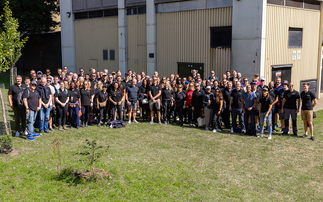Green is rapidly becoming the new black as industry attitudes change
While the astronomical figures bandied around the UN Climate Change Summit in New York may or may not suggest that world leaders are finally facing up to an era of global uncertainty, one industry lagging...
To continue reading this article...
Join BusinessGreen
In just a few clicks you can start your free BusinessGreen Lite membership for 12 months, providing you access to:
- Three complimentary articles per month covering the latest real-time news, analysis, and opinion from Europe’s leading source of information on the Green economy and business
- Receive important and breaking news stories via our daily news alert
- Our weekly newsletter with the best of the week’s green business news and analysis






